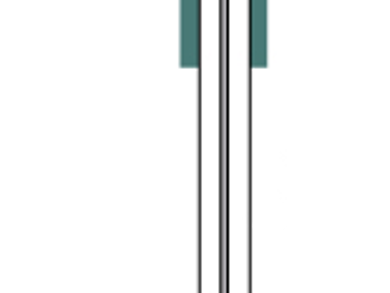Most of todays existing energy devices have a planar or bulky structure, which does not meet the urgent demand of portable, flexible and wearable applications. Fibrous carbon materials, such as carbon nanotube fibers, graphene fibers, and carbon fibers (CFs) are promising electrode materials but suffer from intrinsically limited electrochemical activities, which significantly restrict their actual performance in fibrous energy devices.
Jia Liang, Nanjing University, Jiangsu, China, and colleagues prepared a coaxial fibrous electrode by growing ultrathin MoS2 nanofilms onto TiO2 nanoparticle coated carbon fiber (CF@TiO2@MoS2). The team found that the high electrochemical activity of MoS2 and the good conductivity of CF synergistically lead to a remarkable conversion efficiency of 9,5 % in fibrous dye-sensitized solar cells.
The fibrous electrode can be used simultaneously in various energy harvesting and storage applications, e.g., as an integrated self-powering energy fiber by combining a fibrous dye-sensitized solar cell and a supercapacitor part on a single CF@TiO2@MoS2 electrode. Furthermore, it is shown that this electrode can be used for fibrous lithium ion batteries as well as for electrocatalytic hydrogen evolution reactions.
- MoS2-Based All-Purpose Fibrous Electrode and Self-Powering Energy Fiber for Efficient Energy Harvesting and Storage,
Jia Liang, Guoyin Zhu, Caixing Wang, Yanrong Wang, Hongfei Zhu, Yi Hu, Hongling Lv, Renpeng Chen, Lianbo Ma, Tao Chen, Zhong Jin, Jie Liu,
Adv. Energy Mat. 2016.
DOI: 10.1002/aenm.201601208




